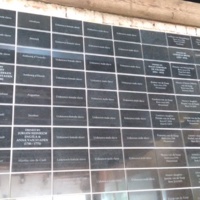
Solms Delta
Solms Delta is a wine estate, situated east of Cape Town in the heart of the Cape Winelands. It was founded as Zandvleit in 1690, with the name change coming in 2002 after purchase by University of Cape Town-based neurosurgeon Mark Solms who wished to distinguish it from other farms with the same name. As with the majority of South African wine farms of a similar age, its early labour force rested on enslavement. Solms approach to farm ownership has seen him attempt to eschew the well-worn white owner/black worker relationship by launching a socio-economic reform project. Money has been invested in new housing featuring satellite television, whilst an education project both for workers and their children has been established. Social enrichment activities based around music, sports, and performance have been encouraged in an attempt to improve the traditionally poor socio-economic circumstances of the workers, many of whom live on the estate just as their ancestors did. Solms has explained in interviews that this refreshed approach to wine farming arises from a perceived responsibility to acknowledge his own life privileges as a white South African. Crucially, workers have been given shares in a land equity scheme.
Solms Delta hosts two museums. One of these, named Museum van de Caab with deference to Cape slave naming patterns, opened at the same time as the estate opened to the public in 2005, with a music museum opening in 2014. Acknowledgement of the past as a means of understanding how workers have been exploited over time is a crucial part of Solms’ project. Slavery is referenced in both museums, with songs as evidence of slave culture appearing in the music museum. In Museum van de Caab it forms a fundamental part of a general farm history which traces the story of the land to the origins of humankind. A memorial feature occupies a prominent position in one of two galleries, detailing the names of every person revealed by archival research to have been enslaved on the estate. Guided museum and estate tours are available, conducted by estate workers.